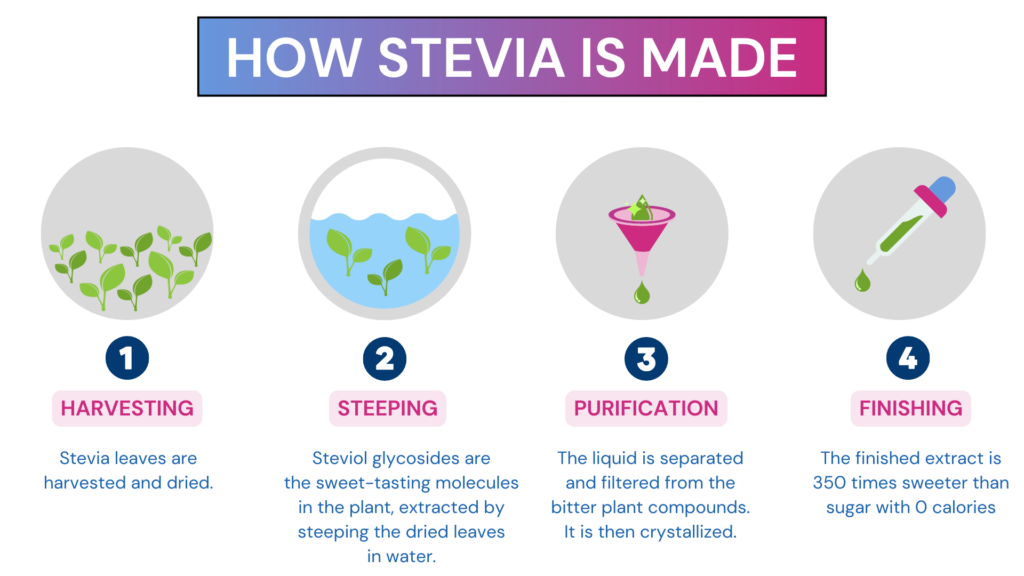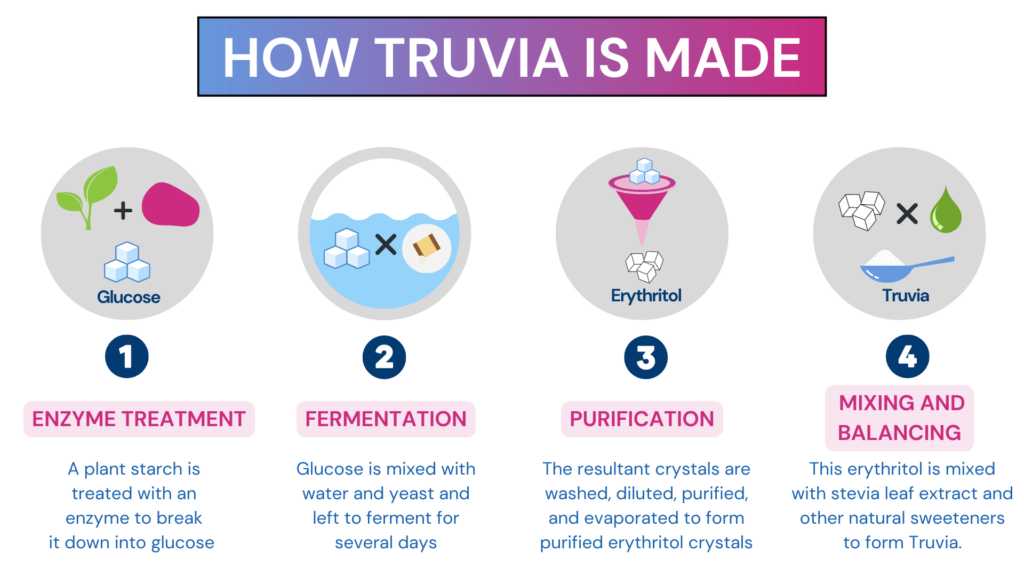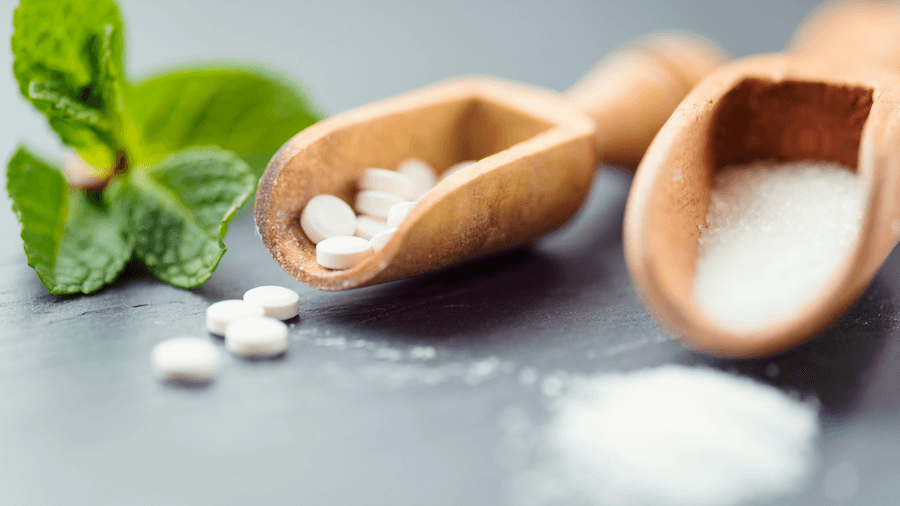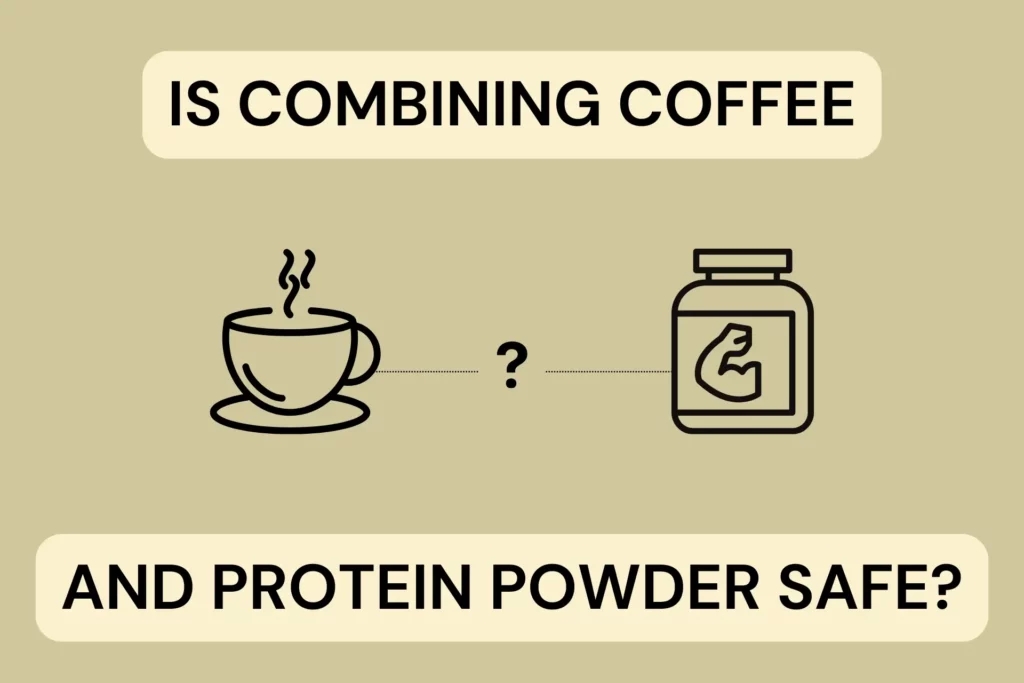Searching for a sugar substitute that won't compromise your health? The market is filled with options, but it can be overwhelming to choose the right one. Today, we're shedding light on the debate - Truvia vs stevia, two natural sweeteners that have gained popularity. Join us as we uncover the truth about these alternatives and discover which might be the healthier choice for your sugar cravings.
Many people today prefer a low-sugar, no-sugar, or no-carb diet due to the adverse effects of sugar consumption.
Natural Sugars
Sugar is a type of carbohydrate, just like fiber and starch. There are different types of natural sugars.
For example, sucrose is a natural sugar found in fruits, vegetables, grains, and even dairy products.
Other natural sugars include:
- Fructose
- Galactose
- Lactose
- Maltose
Sugars, in moderate quantities, are essential for the body.
While natural sugars are healthy for you, consuming foods with added sugars can cause high blood sugar, insulin resistance, obesity, heart issues, and dental cavities.
Finding a sugar alternative today is relatively easy; however, it is important to understand why we need them.
What Are Sugar Substitutes/Artifical Sweeteners?
Sugar substitutes are synthetically prepared or plant-based substances used to sweeten food or enhance the flavor of food and beverages.
Sugar substitutes can be of 3 types:
Artificial sweeteners: Zero-calorie sugar substitutes that do not contain sugar or any beneficial nutrients, are usually produced in laboratories, and are regulated by the FDA.
Examples: Neotame, aspartame, saccharin, sucralose, acesulfame potassium (Ace-K), advantage
The World Health Organization’s cancer research arm has labeled aspartame a “possible carcinogen.” A committee of 25 international experts has determined that aspartame may "possibly" cause cancer in people. There are several views about the safety of artificial sweeteners. Some experts believe these sweeteners pose health hazards. Studies are ongoing to determine the health risks of artificial sweeteners on humans.
Sugar alcohols: Synthetic compounds similar to artificial sweeteners but are not as sweet. They are added to foods for enhanced texture and taste but may cause gastrointestinal irritation, bloating, gas, and diarrhea.
Examples: Maltitol, sorbitol, xylitol, isomalt, lactitol
Novel sweeteners: Sugar substitutes derived from natural sources that are calorie-free, thus not leading to weight gain or spikes in blood sugar levels.
Examples: Stevia, allulose, monk fruit
What Is The Healthiest And Unhealthiest Sugar Substitute To Use?
A Harvard study identified three sugar substitutes to be associated with health risks:
- Aspartame: Linked to a higher risk of stroke.
- Acesulfame potassium and sucralose were associated with a higher risk of coronary artery disease.
Stevia and monk fruit are “generally regarded as safe,” which means they are safe to consume.
What Is Stevia?
Stevia is an all-natural, calorie-free sweetener derived from Stevia rebaudiana (a herb).
The herb contains rebaudioside A, the sweetest compound in the stevia leaf.

The FDA has labeled rebaudioside A as ‘generally recognized as safe (GRAS).’
Stevia is a versatile sweetener that can be used as a sugar substitute in cooking, baking, and preparation of beverages.
Compared to regular table sugar, stevia is way sweeter, and some people complain of a slightly bitter aftertaste.
Benefits of Stevia
- Zero calories: Contains no calories, making it a popular choice for weight management.
- Dental health: Does not contribute to tooth decay, unlike regular sugar.
- High sweetness level: Much sweeter than sugar, requiring only a small amount for the desired sweetness.
Pros and Cons Of Stevia
Here are a few pros and cons of stevia:
| Pros | Cons |
| Vegan and vegetarian-friendly | Costlier than regular sugar |
| Provides sweetness with zero calories | Not all products contain pure stevia |
| Gluten-free, non-GMO | Difficult to bake with |
| Better for the environment |
What Is Truvia?
Truvia is the brand name for a sugar alternative launched by the Cargill company in 2018.
It combines stevia leaf extract with erythritol (sugar alcohol) and added flavors.
The 3 g of carbohydrate in Truvia comes from erythritol.
But, since the body does not absorb this alcohol, Truvia is said to be zero calories.
Pros and Cons Of Truvia
| Pros | Cons |
| Gluten-free Organic and non-GMO | Costlier than sugar |
| Provides sweetness without calories | Known to cause gastrointestinal issues |
| Taste and texture similar to sugar | Some people complain of an unpleasant aftertaste |
Benefits Of Truvia
A few health benefits of Truvia include:
May have anti-diabetic and anti-hyperglycemic effects
Erythritol is believed to have anti-diabetic and anti-hyperglycemic effects.
Since this sugar alcohol does not cause a rise in insulin levels or blood glucose levels, it may be a good sugar substitute for people with diabetes and prediabetes.
May improve dental health
Since Truvia does not contain sugar, it may reduce the incidence of tooth decay and cavities.
Research states that erythritol prevents the growth of Streptococcus mutans, a bacterium known to cause dental decay.
May have antioxidant properties
Some studies state that erythritol may have antioxidant properties.

Stevia vs. Truvia: Which Is Better? The Ultimate Comparison
| Stevia | Truvia | |
| Calories | 0 | 0 |
| Carbs | 1 g | 3 g |
| Fat | 0 g | 0 g |
| Protein | 0 g | 0 g |
| Fiber | 0 g | 0 g |
| Sodium | 0 mg | 0 mg |
| Vitamins and Minerals | 0 mg | 0 mg |
| Added sugar | nil | Erythritol (sugar alcohol) is added to stevia to make Truvia |
| Glycemic Index | 0 | 0 |
| Taste | Stevia liquid extract is considered to be 15 to 30 times sweeter than table sugar. Stevia powder is 200 to 300 times sweeter than sugar. | Sweeter than stevia. |
| Benefits | May be beneficial for glucose and insulin response May prevent dental caries May have a blood pressure-lowering effect | May have anti-diabetic and anti-hyperglycemic effects May improve dental health May have antioxidant properties |
| Side Effects | Some people may develop an allergy to stevia. | May impact gut health in some individuals May cause laxative effects May cause bloating, stomach pain, and gas, especially in people with irritable bowel syndrome (IBS) |
Truvia vs. Stevia For People With Diabetes
A joint statement by the American Heart Association and American Diabetes Association said that stevia and a few other sugar substitutes may benefit people with diabetes.
However, they must be used in recommended amounts.
A few health benefits of stevia for people with diabetes include:
- Better blood sugar control
- Improved satiety and reduced hunger
- Possible antioxidants that may help fight diabetes
A 2016 study found that stevia leaf powder significantly lowered blood sugar levels in people with diabetes (fasting and post-prandial levels).
Like stevia, Truvia does not cause a rise in blood sugar levels, making it a safe sugar substitute for people with diabetes.
If you have diabetes or prediabetes or wish to manage your blood sugar levels, ask your doctor for the best possible sugar substitute.
Bottomline: Truvia vs. Stevia - Which Is Better?
Even though Truvia contains stevia, many nutritionists pick stevia as the better and safer option for consumption.
This is because stevia is less processed than Truvia and does not contain sugar alcohol like erythritol, which may cause gastrointestinal side effects.
FAQs On Truvia vs Stevia
What Is The Downside Of Truvia?
Truvia’s erythritol content (a sugar alcohol) can cause digestive issues like bloating or diarrhea in some people, especially if consumed in large amounts. Additionally, Truvia is a processed product combining stevia extract with other ingredients, which may not appeal to those seeking a less refined sweetener.
What Is The Healthiest Sweetener?
There’s no one-size-fits-all “healthiest” sweetener. Plant-based options like stevia and monk fruit are generally recognized as safe and contain few or no calories. However, experts often emphasize using any sweetener in moderation and focusing on an overall balanced diet.
Is There A Downside To Stevia?
Highly purified stevia extracts are considered safe by the FDA, but whole-leaf or crude stevia is not approved for widespread use due to concerns about its possible effects on blood sugar, reproductive systems, and more. Some people also report a bitter or metallic aftertaste.
Is monk fruit better than stevia?
Is Monk Fruit Better Than Stevia?
Both monk fruit and stevia are zero- or low-calorie sweeteners derived from plants. Evidence suggests neither is universally “better” than the other; it often comes down to personal taste, tolerance, and how each sweetener fits into an individual’s overall diet.
What Is The Healthiest Sugar Substitute For Coffee?
Stevia, monk fruit, and erythritol-based blends can all reduce added sugar in coffee. However, many health experts recommend gradually scaling back any sweetener to help reset taste preferences and encourage a more balanced diet overall.
Summary
- Consuming high-sugar foods or those with added sugars can cause conditions like high blood sugar, insulin resistance, obesity, heart issues, and dental cavities.
- To avoid sugar consumption, there are substitutes like artificial sweeteners, sugar alcohols, and novel sweeteners.
- Stevia is a naturally sweet, calorie-free plant-based alternative to sugar that can be used in cooking, baking, and beverages.
- Truvia is another sugar alternative that contains stevia and erythritol (sugar alcohol).
- Both stevia and Truvia are sweet and have zero calories, making them popular sugar substitutes.
- Though stevia and Truvia offer few health benefits, they also have a few drawbacks.
Expert-recommended Picks

Erythritol vs. Xylitol: Which Is The Healthier Sugar-Free Option?

Is Coffee And Protein Powder Combination Safe? Experts Weigh In
References
- https://www.healthline.com/health/food-nutrition/stevia-truvia-difference
- https://www.healthline.com/nutrition/truvia-good-or-bad/
- https://www.verywellfit.com/stevia-vs-truvia-how-they-compare-according-to-dietitians-5184245
- https://www.hopkinsmedicine.org/health/wellness-and-prevention/facts-about-sugar-and-sugar-substitutes




